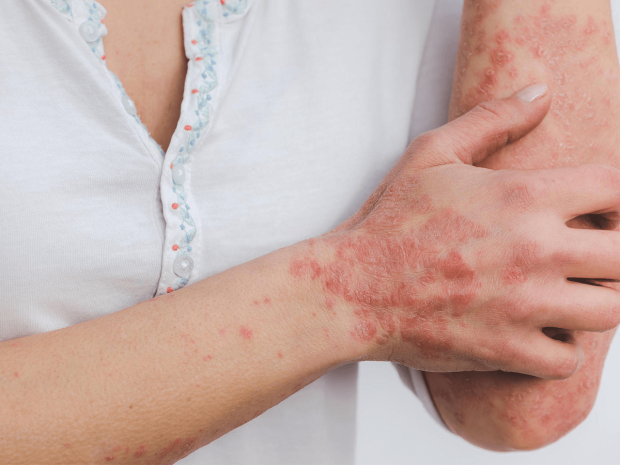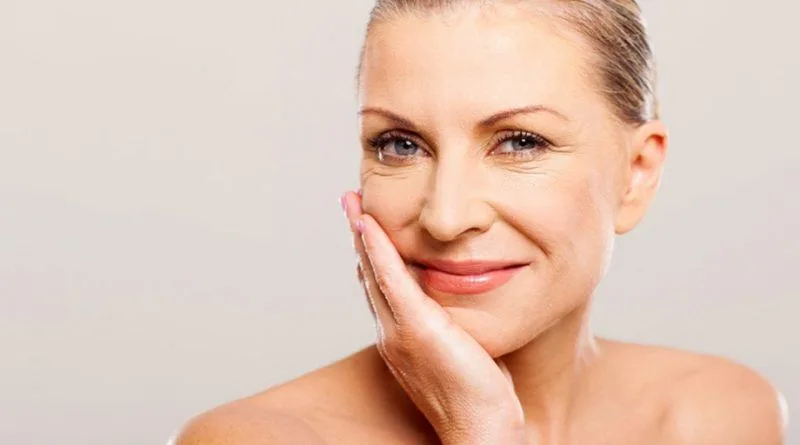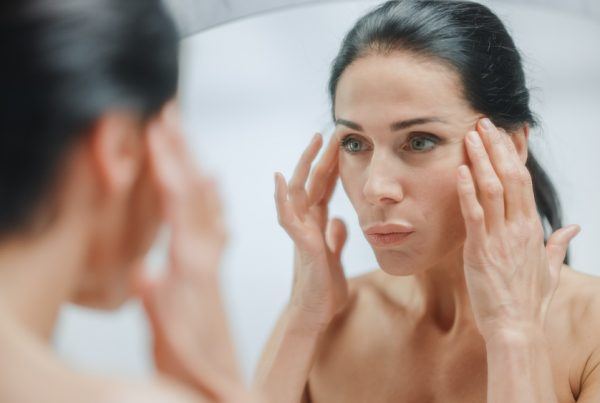Skincare concerns are some of the most common issues out there, but they can also be hard to address. If you’re struggling, here’s a how-to guide to fixing your most common skin woes.
1. Varicose veins
It’s best to consult a vascular surgeon who can correctly assess and manage varicose veins, says dermatologist Dr. Sian Hartshorne. Vascular surgeons don’t strip veins anymore; they now perform a better, less invasive surgical procedure, ablating the veins from the inside, she says.
Dermatologist Dr. Noori Moti-Joosub adds that the deeper varicose veins can be effectively treated with sclerotherapy. It’s important to note, however, that vein treatment is ongoing and may need to be repeated. In addition, pregnancy can exacerbate varicose veins, which are very common.
2. Psoriasis
Psoriasis is a common, life-long, inflammatory skin condition that affects around 2% of the world’s population.
Normally, healthy skin cells mature and shed from the skin’s surface every 28 days. In psoriasis, these cells reproduce much more quickly, usually within three to four days, and pile up on the surface of the skin. This causes the development of thick, scaly, red patches of skin.
The root causes of psoriasis begin inside the body, making it more than skin-deep, as inflammation can impact other organs in the body. Diseases associated with psoriasis include psoriatic arthritis, diabetes, high blood pressure, and heart disease, among others.
Psoriasis affects the hydration of the skin and the function of the skin barrier. The skin barrier is made up of multiple layers of cells, called corneocytes, which can be considered the “bricks” of a protective wall. The “glue” with which they are held together are the lipids in our skin, such as ceramides. A healthy skin barrier maintains the water balance in the skin and protects against environmental aggressors such as UV rays, micro-organisms, and pollution.
 How to treat psoriasis
How to treat psoriasis
The treatment of psoriasis is centered around anti-inflammatory prescription medication. Depending on the severity of the condition, prescriptions include topical creams, light therapy, and oral and injectable medications.
The fact that psoriasis affects the skin barrier means that good basic skincare practices are essential, in conjunction with medical treatment. This can help relieve dryness and itchiness and strengthen skin barrier function, which can improve overall quality of life.
- Cleanse your skin gently. It’s important to use gentle pH-balanced cleansers, which can protect against further disruption of the fragile skin barrier.
- Choose the ideal moisturizer. Moisturizers can help to reduce the dryness, scaling, and roughness of psoriasis-affected skin. A good moisturizer usually contains a combination of ingredients: emollients (eg dimethicone), humectants (eg glycerin), and occlusives (eg petroleum jelly). It’s useful to look for ceramides, as they form the predominant component of the skin barrier and offer excellent barrier-repair activity.
Active ingredients to look for in skincare products
Alongside moisturizers, there are several common products containing active ingredients that can provide additional skin-conditioning benefits for psoriasis.
- Keratolytics, such as salicylic acid and urea, help to promote the skin cell shedding process and can reduce the scaling of psoriasis-affected skin. Studies show that salicylic acid at 2-10% applied directly to psoriatic plaques can aid in softening them. Products containing 5% urea help to increase skin hydration and medication penetration.
- Niacinamide, also known as vitamin B3, has anti-inflammatory properties and supports the skin barrier function by facilitating the formation of ceramides.
- Coal tar has been used in the treatment of psoriasis for almost a century, but its use has decreased over time, due to its odor and potential to cause irritation. Tar formulations can be found in numerous products, from lotions to shampoos.
Does sun exposure make it better or worse?
Psoriasis can respond beneficially to UV radiation from natural sunlight or artificial sources (phototherapy). However, sun-induced aggravation of psoriasis can occur in around five to 24% of people, particularly in light-skinned individuals. Sunburn can also provoke new areas of the condition, in a process called a Koebner response. Daily sun protection is recommended with sunscreen of a minimum SPF 30 to treat psoriasis.
Resources
It’s important to treat psoriasis early. Work with a registered dermatologist to determine which medication options will be best for you, but simultaneously taking good care of your skin may alleviate some of the discomforts that psoriasis can cause.
You can also join the #MoreThanSkinDeep Facebook Community, to connect with people living with psoriasis who understand what you’re going through, and access valuable information and insights as you navigate your life with psoriasis.
3. Rosacea
Rosacea is a common chronic skin disease that affects millions of people around the world. While it’s unfortunately thus far incurable, it’s still treatable by a dermatologist, with products that help to calm the skin and reduce redness.
There are different types of rosacea, and they present slightly differently.
Subtype 1
This is what most of us would recognize as rosacea. Scientifically, it’s known as erythematotelangiectatic rosacea, often abbreviated to ETR. It’s characterized by facial flushing and redness of the skin, as well as visible blood vessels.
Subtype 2
Also known as acne or papulopustular rosacea, it’s characterized by breakouts that resemble those of acne. It most commonly impacts middle-aged women with pale skin.
Subtype 3
Scientifically known as rhinophyma, this type of rosacea is much rarer and is associated with a thickening of the skin on the nose. It most commonly impacts men and is usually accompanied by at least one other subtype of rosacea.
Subtype 4
Also known as ocular rosacea, the symptoms are centered around the eyes.
While the actual underlying cause of rosacea is unknown, it appears to be a combination of hereditary and environmental factors. However, experts do know that there are certain triggers that can exacerbate the condition. These include:
- Hot drinks
- Spicy foods
- Red wine
- Alcoholic beverages
- Temperature extremes
- Sunlight and/or wind
- Strong emotions
- Physical exertion or exercise
- Some blood-pressure medications
- Some cosmetic products
- Eating foods that contain cinnamaldehyde (chocolate, cinnamon, tomatoes and citrus)
- A skin mite called demodex – specifically the bacterium it carries, bacillus oleronius
- Intestinal bacteria Helicobacter pylori
Generally, symptoms of rosacea include flushing of the skin, particularly in the centre of the face, swelling of the skin, visibly broken blood vessels, extremely sensitive skin that itches, stings, or burns, and dry, rough, or scaly skin.
If you’re exhibiting symptoms of rosacea, you’ll need to see a doctor or dermatologist for a proper diagnosis. They’ll likely suggest topical or oral medications. Certain products should be avoided, such as those that contain alcohol, menthol, witch hazel, or exfoliating agents. You’ll also want to stay out of the sun, avoid drinking too much alcohol, and be very cautious when it comes to skin treatments and cosmetics.





![women [longevity live]](https://longevitylive.com/wp-content/uploads/2020/01/photo-of-women-walking-down-the-street-1116984-100x100.jpg)








